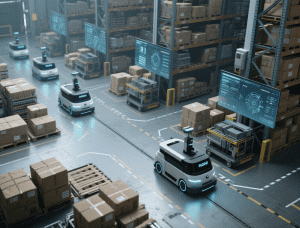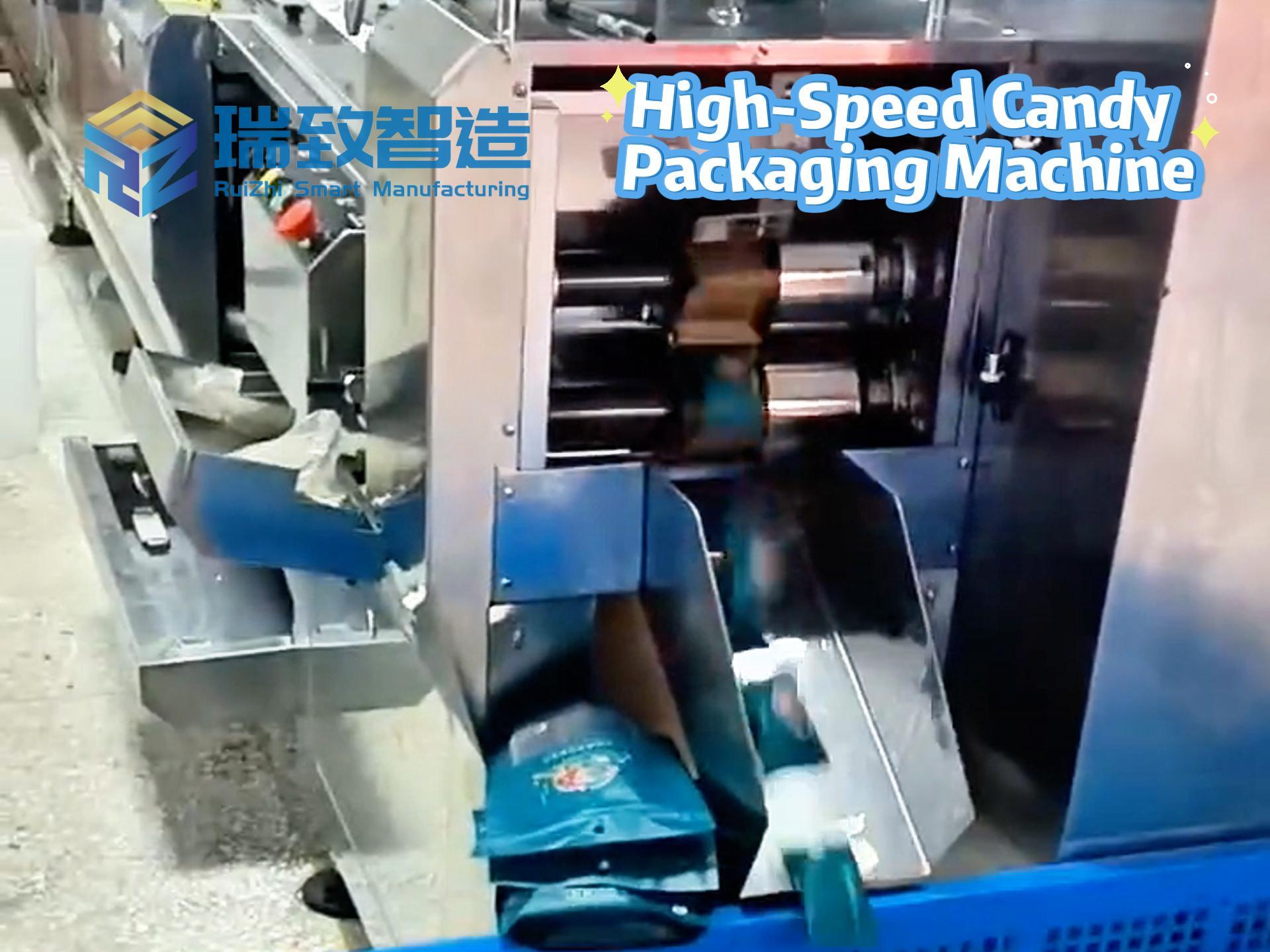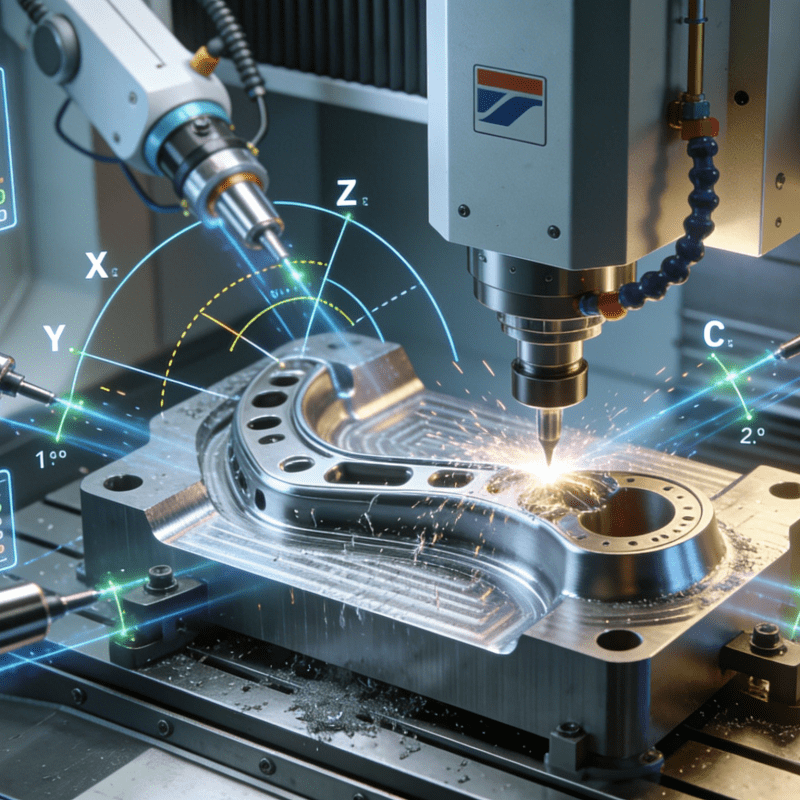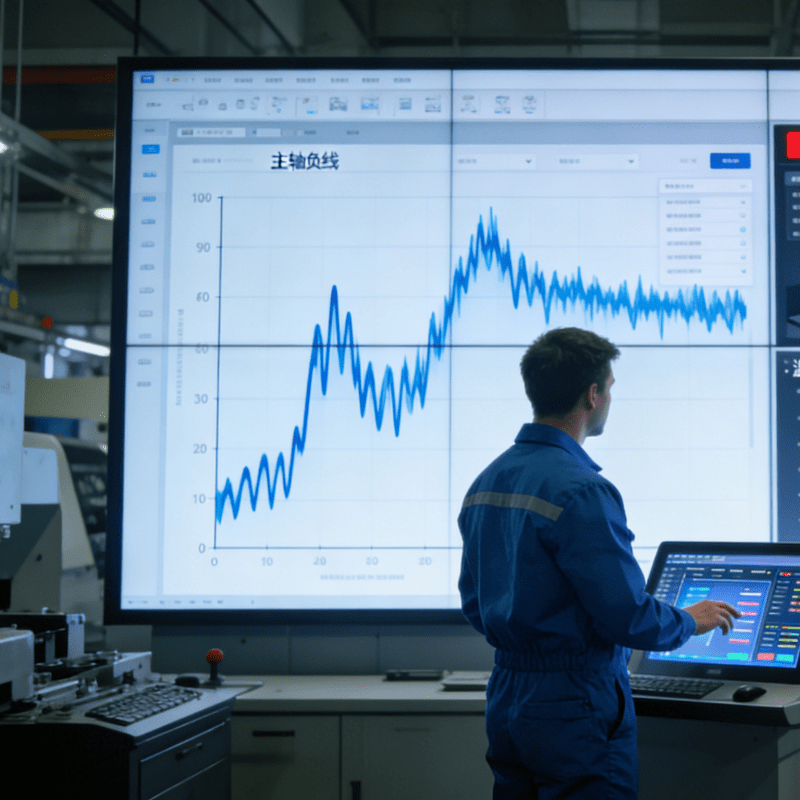Table of Contents
ToggleAI in Manufacturing: Enhancing Production Efficiency

In the humming heart of modern factories, where the clatter of machinery and the rhythm of assembly lines define the industrial landscape, a revolutionary force is silently reshaping the very fabric of production. Artificial Intelligence (AI), once the stuff of science fiction, has emerged as the linchpin of transformation in manufacturing. From the moment raw materials enter the factory gates to the final packaging of finished products, AI algorithms are at work, analyzing data, predicting outcomes, and making split-second decisions that were once the exclusive domain of human experts. This isn’t just about adding a new tool to the manufacturing toolkit; it’s about ushering in a new era of intelligent production, where machines learn, adapt, and optimize processes in real – time, setting the stage for unprecedented levels of efficiency, quality, and innovation. And this transformative power of AI is not limited to traditional automotive or electronics manufacturing. It is also making significant inroads in the production of specialized equipment such as Sanitary Ware Automatic Assembly Machines and Bathroom Fixture Assembly Equipment, where precision, consistency, and efficiency are equally crucial.
AI is changing manufacturing in big ways. It helps make products faster and better. Factories use AI to spot problems before they happen and fix machines quickly. AI can improve quality control, boost overall operational efficiency, and cut costs in manufacturing. In the production of Sanitary Ware Automatic Assembly Machines and Bathroom Fixture Assembly Equipment, for example, AI can ensure that each component is assembled with utmost precision, reducing defects and improving the overall quality of the final products.
Smart robots work with people on factory floors. They do tasks that are hard or dangerous for humans. AI also helps design new products and manage supply chains. It uses data to make smart choices about what to make and when. AI contributes significantly to supply chain resilience by improving responsiveness and agility, helping companies manage demand fluctuations and optimize inventory. When it comes to the manufacturing of Sanitary Ware Automatic Assembly Machines and Bathroom Fixture Assembly Equipment, AI – driven supply chain optimization can ensure that the right raw materials are available at the right time, streamlining the production process and reducing lead times.
Companies that use AI in manufacturing are seeing good results. They can make custom products faster and cheaper. AI capability enhances various manufacturing processes, including workforce planning, predictive maintenance, and production scheduling. AI helps them use less energy and materials too. This is good for the environment and saves money. In the context of manufacturing Sanitary Ware Automatic Assembly Machines and Bathroom Fixture Assembly Equipment, AI – enabled energy optimization can reduce the power consumption during the production process, making the manufacturing more sustainable.
Key Takeaways
- AI enhances manufacturing speed, quality, and efficiency
- Smart robots and humans work together in modern factories
- AI solutions help companies save money and reduce waste
- AI is revolutionizing the production of specialized equipment like Sanitary Ware Automatic Assembly Machines and Bathroom Fixture Assembly Equipment
Basics of AI in Manufacturing
AI is transforming manufacturing by automating processes and improving efficiency. It uses data and algorithms to make production smarter and more responsive.
Definition of AI
AI in manufacturing refers to computer systems that can perform tasks that usually need human intelligence. These systems can learn from data, spot patterns, and make choices with little human input. AI includes machine learning, which allows computers to improve their performance over time. It also covers robotics, computer vision, and natural language processing. AI-driven predictive maintenance is a transformative technology for manufacturers, allowing them to predict equipment failures, reduce downtime, and improve operational efficiency. In the manufacturing of Sanitary Ware Automatic Assembly Machines and Bathroom Fixture Assembly Equipment, AI – based predictive maintenance can ensure that the assembly line machinery operates smoothly, minimizing disruptions.
In factories, AI can control machines, check product quality, and plan production schedules. It makes decisions based on real-time data from sensors and other sources. AI algorithms optimize operations through performance monitoring, real-time data analysis, and predictive maintenance by identifying patterns and trends. For instance, in the production of Bathroom Fixture Assembly Equipment, AI can analyze sensor data from the assembly line to detect any potential issues with the machinery, ensuring consistent production quality.
Role of AI in Modern Manufacturing
AI plays a key role in making factories smarter and more productive. It helps companies make better products faster and with less waste.
Some key AI applications in manufacturing include:
- Predictive maintenance: AI predicts when machines will need repairs, reducing downtime. Digital twins play a crucial role in simulating and optimizing the performance of physical assets through real-time data from sensors. In the case of Sanitary Ware Automatic Assembly Machine production, predictive maintenance powered by AI can prevent unexpected breakdowns, ensuring continuous production.
- Quality control: AI-powered cameras spot defects humans might miss. When manufacturing Bathroom Fixture Assembly Equipment, AI – enabled quality control systems can detect even the tiniest flaws in the fixtures, ensuring that only high – quality products reach the market.
- Supply chain optimization: AI forecasts demand and manages inventory more accurately. Machine learning spots patterns humans might miss. It can suggest when to order materials and how much. Additionally, manufacturing solutions that utilize AI enhance supply chain management by improving efficiency, accuracy, and cost – effectiveness. For the supply chain of Sanitary Ware Automatic Assembly Machine components, AI can predict demand fluctuations, ensuring optimal inventory levels.
- Robot control: AI makes robots more flexible and able to work safely alongside humans. In factories producing these specialized assembly machines, AI – controlled robots can perform repetitive and precise tasks, increasing production speed and accuracy.
AI also helps with product design and testing. It can suggest improvements and simulate how new products will perform. Generative design software, powered by AI, accelerates design iterations by aligning with specific business objectives, leading to innovative product designs that meet market demands. When designing new models of Sanitary Ware Automatic Assembly Machines and Bathroom Fixture Assembly Equipment, AI – based generative design can come up with more efficient and ergonomic designs.
By using AI, manufacturers can respond faster to changes in demand or supply. This makes them more competitive in today’s fast – paced market.
The Manufacturing Value Chain and AI
AI is transforming every stage of manufacturing. On the shop floor, AI enhances operational efficiency by monitoring machinery, optimizing layouts, and ensuring safety. It helps companies make smarter decisions, boost efficiency, and improve quality across their operations. The transformative impact of artificial intelligence on manufacturing processes is evident in predictive maintenance, supply chain optimization, and quality control. AI technologies drive advancements and help achieve sustainability goals within manufacturing processes.
Supply Chain Optimization
AI tools analyze data from suppliers, inventory, and customer demand. This helps companies predict needs and avoid shortages. Machine learning spots patterns humans might miss. It can suggest when to order materials and how much. Additionally, manufacturing solutions that utilize AI enhance supply chain management by improving efficiency, accuracy, and cost – effectiveness. For the production of Sanitary Ware Automatic Assembly Machines and Bathroom Fixture Assembly Equipment, AI – powered supply chain optimization can ensure that the raw materials for components, such as pipes, fittings, and molds, are sourced at the best prices and delivered on time.
AI also improves logistics. It finds the best shipping routes and predicts delivery times. This cuts costs and gets products to customers faster. However, implementing AI in supply chain optimization comes with challenges, such as the need for a clear strategy and addressing integration issues to ensure successful adoption. When transporting finished Sanitary Ware Automatic Assembly Machines, AI can determine the most efficient shipping routes, reducing transportation costs and delivery times.
Smart algorithms help manage warehouse operations too. They decide where to store items and how to pick them efficiently. Some warehouses use AI-powered robots to move products around. In warehouses storing components for Bathroom Fixture Assembly Equipment, AI – controlled robots can quickly retrieve and sort parts, streamlining the production process.
Production and Operations
On the factory floor, AI makes manufacturing smarter and more flexible. Computer vision systems inspect products for defects. They work faster and more accurately than human eyes. In the production of Sanitary Ware Automatic Assembly Machines, AI – based computer vision can check the alignment and fit of various parts, ensuring that the final machine functions properly.
AI also helps with predictive maintenance. It analyzes data from sensors on machines. This spots problems before they cause breakdowns. It saves time and money on repairs. Additionally, AI analyzes market trends to optimize production schedules, ensuring efficient resource allocation and timely responses to demand changes. For the machinery used in Bathroom Fixture Assembly Equipment production, predictive maintenance can extend the lifespan of the equipment and reduce unplanned downtime.
Collaborative robots work alongside humans. They handle repetitive or dangerous tasks. This improves safety and frees up workers for more skilled jobs. AI enhances human capabilities in manufacturing by identifying defects beyond human capabilities and augmenting workers’ efficiency and safety. In factories producing these specialized assembly machines, cobots can handle tasks like heavy lifting of components or precise screwing, while human workers focus on more complex assembly and quality assurance tasks.
AI optimizes production schedules too. It balances workloads and adjusts for unexpected events. This keeps production lines running smoothly. When there are fluctuations in orders for Sanitary Ware Automatic Assembly Machines and Bathroom Fixture Assembly Equipment, AI can quickly re – schedule production to meet the new demands.
After-Sales and Services
AI enhances customer support after products are sold. Chatbots answer common questions quickly. They can handle basic troubleshooting too. Integrating AI in after-sales services can further personalize customer interactions and streamline issue resolution. For customers who purchase Sanitary Ware Automatic Assembly Machines, AI – powered chatbots can provide instant answers to questions about installation and basic maintenance.
For more complex issues, AI helps human agents. It suggests solutions based on past cases. This speeds up problem-solving. When customers face problems with Bathroom Fixture Assembly Equipment, AI can analyze historical data to recommend the best repair strategies to customer service agents.
Predictive analytics spot potential product issues early. Companies can fix problems before customers notice. This builds trust and loyalty. Additionally, digital twin technology plays a crucial role in enhancing product quality and customer satisfaction by simulating real-world conditions and enabling proactive decision-making. In the case of Sanitary Ware Automatic Assembly Machines, predictive analytics can detect potential malfunctions in the machine’s components, allowing the manufacturer to send replacement parts or schedule maintenance before the customer experiences any issues.
AI also helps companies design better products. It analyzes data from returned items and customer feedback. This shows what features work well and what needs improvement. By analyzing feedback on Sanitary Ware Automatic Assembly Machines and Bathroom Fixture Assembly Equipment, AI can identify areas for product enhancement, such as improving the ease of use or increasing the durability of the equipment.
AI-Driven Quality Assurance and Control
AI is transforming quality assurance and control in manufacturing. For instance, a real-world example is Foxconn, which uses AI to enhance quality assurance by identifying defects in real-time during the production process. It helps catch defects early and keeps machines running smoothly. This leads to better products and less downtime. Additionally, AI enables data-driven decisions in quality control by analyzing historical data and market trends to predict potential issues and optimize processes. In the production of Sanitary Ware Automatic Assembly Machines and Bathroom Fixture Assembly Equipment, AI – driven quality assurance and control are essential for maintaining high standards.
Predictive Maintenance
AI systems can predict when machines will need repairs. They look at data from sensors and past breakdowns. This helps factories fix issues before they cause problems. Additionally, AI provides data-driven insights for predictive maintenance, allowing for more accurate and timely interventions. In factories manufacturing Sanitary Ware Automatic Assembly Machines, AI – based predictive maintenance can monitor the performance of key components like motors and conveyor belts, predicting when they might need maintenance or replacement.
Machine learning models analyze vibrations, temperatures, and other signals. They spot patterns that humans might miss. When something looks off, the AI alerts technicians. AI can also predict demand for maintenance resources, ensuring that necessary parts and personnel are available when needed. For the production lines of Bathroom Fixture Assembly Equipment, machine learning algorithms can detect early signs of wear and tear in the assembly machinery, enabling proactive maintenance.
This approach cuts surprise breakdowns. It also saves money on unnecessary maintenance. Factories can plan repairs during slow times. This keeps production going and improves quality.
Defect Detection Systems
AI-powered cameras and sensors find product flaws quickly. They check items on assembly lines faster than human eyes. This catches more defects before products leave the factory. AI algorithms play a crucial role in defect detection by analyzing real-time data and identifying patterns that indicate potential issues. In the manufacturing of Sanitary Ware Automatic Assembly Machines, AI – powered cameras can detect defects in the machine’s structure, such as misaligned parts or uneven surfaces.
These systems use computer vision and deep learning. They’re trained on thousands of images of good and bad products. The AI can spot tiny issues a person might not see. AI agents assist in identifying and managing defects by utilizing advanced technologies to optimize the inspection process and minimize human intervention. When it comes to Bathroom Fixture Assembly Equipment, AI – based defect detection can identify flaws in fixtures, like cracks or uneven finishes, ensuring that only high – quality products are shipped.
As products move down the line, the AI checks each one. It flags items with problems for further inspection. This helps ensure only high-quality goods reach customers.
AI defect detection works 24/7 without getting tired. It can handle high-speed production lines. This leads to more consistent quality control.
Technological Innovations in AI Manufacturing
AI is transforming manufacturing through smart factories, advanced 3D printing, and intelligent robots. By analyzing real-time sensor data, businesses can identify equipment issues before they escalate into failures, thereby enhancing operational efficiency and reducing downtime. These technologies are making production more efficient, flexible, and precise. AI technologies, such as automation and data analysis, are also enhancing efficiency by streamlining operations, improving process accuracy, and reducing costs. This leads to more adaptable and responsive manufacturing systems. In the context of Sanitary Ware Automatic Assembly Machines and Bathroom Fixture Assembly Equipment production, these technological innovations can revolutionize the manufacturing process.
Smart Factories
Smart factories use AI to connect machines, systems, and processes. Sensors gather data from equipment in real-time. AI analyzes this data to optimize production, contributing to cost efficiency by reducing operational costs and streamlining processes. In a smart factory producing Sanitary Ware Automatic Assembly Machines, sensors on each production machine can collect data on factors like speed, temperature, and energy consumption. AI can then analyze this data to optimize the production process, reducing waste and increasing efficiency.
Predictive maintenance prevents breakdowns before they happen. AI spots patterns that signal future problems. This keeps production running smoothly and helps optimize efficiency within factory operations. For the production of Bathroom Fixture Assembly Equipment, predictive maintenance in a smart factory can ensure that the assembly line machinery operates without unexpected interruptions.
AI also adjusts factory operations automatically. It can change production speeds or switch product types quickly. This helps factories respond fast to demand changes. When there is a sudden increase in demand for a particular type of Sanitary Ware Automatic Assembly Machine, AI in a smart factory can quickly adjust the production line to meet the new demand.
Quality control improves with AI-powered visual inspection systems. These catch defects human eyes might miss. The result is higher quality products with less waste. In the production of Bathroom Fixture Assembly Equipment, AI – powered visual inspection can detect even the smallest defects in the fixtures, ensuring top – notch quality.
Additive Manufacturing and AI
AI is making 3D printing smarter and more capable. It helps design parts that are lighter yet stronger. AI can suggest design improvements humans might not think of. Digital twin technology plays a crucial role in additive manufacturing by creating virtual replicas of the printing process, enabling simulation and analysis for performance optimization. When using 3D printing to create components for Sanitary Ware Automatic Assembly Machines, AI can optimize the design to make the parts more durable and efficient.
Printers guided by AI create complex shapes impossible with traditional methods. They can print parts with internal structures that save material and weight. Generative design software enhances 3D printing processes by allowing for the rapid exploration of multiple design iterations based on specified objectives, leading to optimized and innovative product designs. For Bathroom Fixture Assembly Equipment, AI – guided 3D printing can produce unique and customized fixtures with intricate designs.
AI monitors the printing process in real-time. It adjusts settings to ensure perfect results. This reduces errors and improves part quality. In the 3D printing of components for these specialized assembly machines, AI can make real – time adjustments to parameters like temperature and printing speed to ensure high – quality output.
Smart software plans the most efficient way to print multiple parts. It arranges them to use materials wisely and print faster.
Robotics and Automation
AI-powered robots are becoming more flexible and easier to use. They can now handle delicate tasks and work safely alongside humans. An AI system plays a crucial role in optimizing robotic operations by enabling precise control and adaptability. In factories manufacturing Sanitary Ware Automatic Assembly Machines and Bathroom Fixture Assembly Equipment, AI – powered robots can perform tasks like precise assembly of small components or handling of fragile materials.
Collaborative robots, or cobots, learn new jobs quickly. AI helps them adapt to changes without reprogramming. This makes automation practical for smaller companies. Additionally, AI helps optimize manufacturing processes through automation, making factory operations more efficient and responsive to demand. Cobots in these factories can be quickly trained to perform new tasks when there are changes in the product design or production process.
Computer vision lets robots “see” their surroundings. They can pick parts from bins, avoiding collisions. Some robots can even identify and sort different objects. In the production of Bathroom Fixture Assembly Equipment, robots with computer vision can pick and place the right fixtures and components accurately, increasing the speed and accuracy of the assembly process.
AI helps robots understand human speech and gestures. This makes it easier for workers to give instructions or work together with robots on complex tasks. Workers in factories producing these assembly machines can communicate with the robots using simple voice commands or gestures, improving collaboration and productivity.
Data-Driven Decision Making
AI helps factory managers make smarter choices using real-time data and predictive analytics. By collaborating with human workers, AI can enhance decision-making processes, combining human intuition with machine precision. This leads to better planning, faster problem-solving, and more efficient operations. Analyzing data is crucial for making informed decisions. AI leverages historical sales data and market trends to optimize stock levels, forecast future needs, and respond effectively to market fluctuations, thereby minimizing costs and increasing efficiency. In the production and management of Sanitary Ware Automatic Assembly Machines and Bathroom Fixture Assembly Equipment, data – driven decision making is essential.
Big Data Analytics
AI systems crunch huge amounts of data from sensors, machines, and other sources. They spot patterns humans might miss. This helps managers see the big picture and make informed decisions. Additionally, AI automates routine tasks in data analysis, allowing analysts to focus on more complex insights. For companies manufacturing Sanitary Ware Automatic Assembly Machines, AI – based big data analytics can analyze data from various sources, such as production line sensors, customer feedback, and market trends, to make strategic decisions about production, marketing, and product development.
AI tools can predict equipment failures before they happen. This lets factories schedule maintenance at the best times. It cuts downtime and saves money. Moreover, AI plays a crucial role in managing raw materials in manufacturing, streamlining the journey from raw materials to finished products. In the production of Bathroom Fixture Assembly Equipment, big data analytics can predict when machinery might need maintenance, ensuring continuous production.
These systems also help optimize production schedules. They look at factors like orders, inventory, and staffing. Then they suggest the most efficient ways to run




















